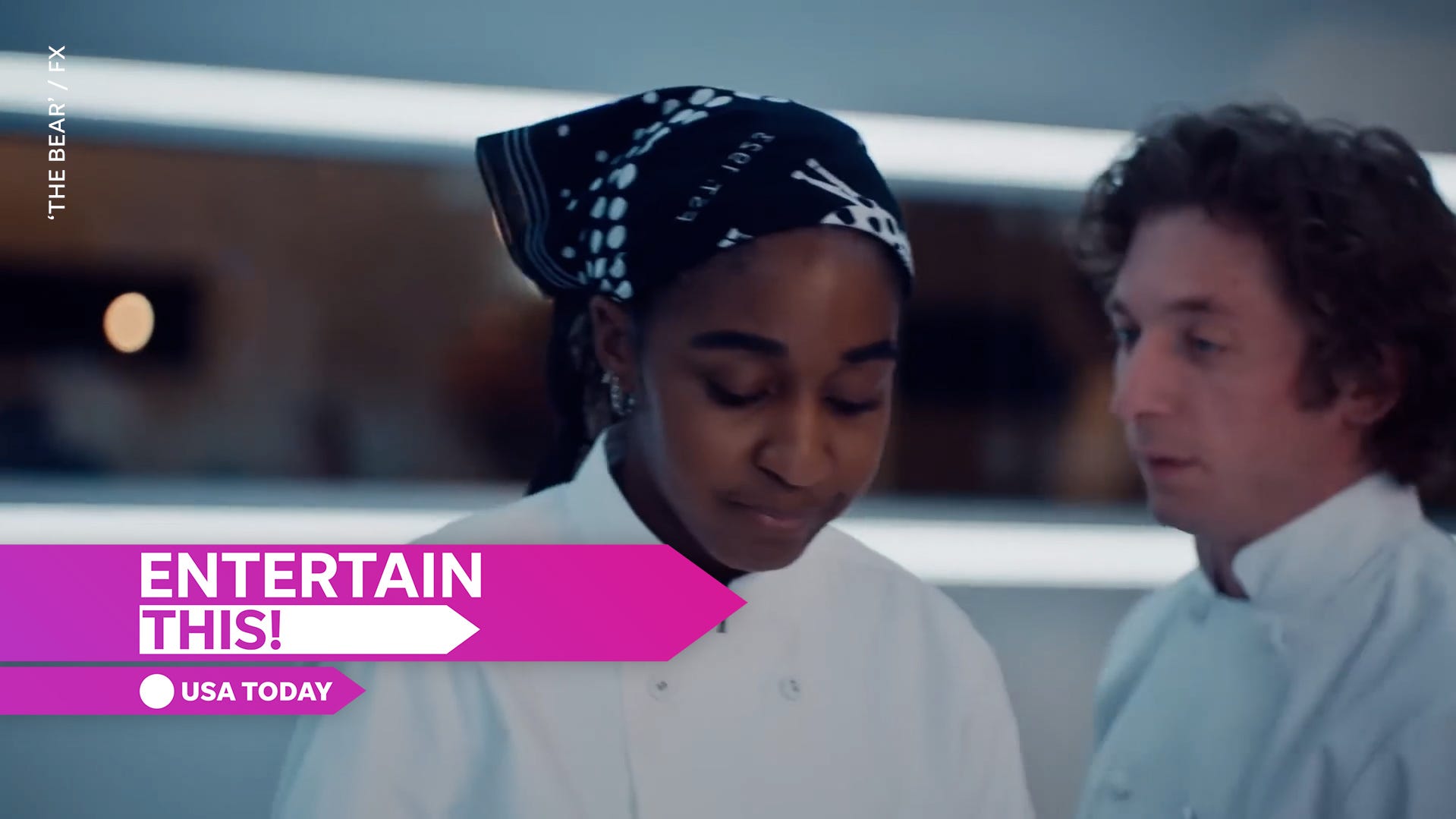
“The Bear,” “Only Murders,” and more of this summer’s hottest TV series
USA TODAY TV critic Kelly Lawler lists this summer’s must-see TV shows, including the return of “The Bear” and “Only Murders in the Building.”
The spectacular premise of Peacock’s “Fight Night: The Million Dollar Heist” seems pure fiction: Armed robbers force the country’s most notorious gangsters to hand over a million dollars in cash and jewels at a secret after-party following Muhammad Ali’s triumphant return to boxing.
Even Atlanta-based executive producer Will Packer was speechless when he learned of the brazen break-in that actually took place after Ali’s fight in Atlanta on October 26, 1970.
“I was like, ‘Yo, how did I never hear about this robbery?’ It’s crazy,” says Packer, who was also an executive producer of the 2020 iHeart podcast “Fight Night,” on which the dramatic television series is based. “A couple of gangsters get robbed after a fight with Muhammad Ali and it turns the city of Atlanta upside down. Yet, to this day, it remains the largest robbery in Georgia history.”
Peacock’s “Fight Night” takes dramatic liberties in telling the story of ambitious local crook Gordon “Chicken Man” Williams (Kevin Hart). Williams makes moves by throwing the lavish party to impress the black mafia, including “Black Godfather” Frank Moten (Samuel L. Jackson), who rules New York’s underworld, and his New Jersey partner, Richard “Cadillac” Wheeler (Terrence Howard).
Here’s what’s remarkably true about “Fight Night” (the first three episodes are streaming now).
Muhammad Ali returned to boxing in Atlanta, which ignited a flame in his heart
Ali (Dexter Darden) had been banned from boxing for over three years after refusing to be drafted into the U.S. Army during the Vietnam War on grounds of conscience. While many states refused to grant Ali a boxing license, powerful Georgia State Senator Leroy Johnson (RonReaco Lee) pushed through Ali’s comeback fight in Atlanta against heavyweight boxer Jerry Quarry (dubbed “The Great White Hope”).
The sold-out event at the Atlanta Municipal Auditorium attracted international attention and celebrities (Sidney Poitier, Arthur Ashe and Diana Ross), politicians and prominent mobsters from across the country.
“It was this black elite from all walks of life coming together in Atlanta, a city that was slowly becoming a black city,” says Shaye Ogbonna, creator and executive producer of “Fight Night.” “It was the gangster class, it was rich people, it was celebrities, everyone came together.”
In the third round, Ali landed a punch that left a gash above Quarry’s eye, resulting in a technical knockout and cheers throughout Atlanta.
Ali’s rebirth as a boxer was a big night for Atlanta and the beginning of a special relationship between the city and the legendary boxer, which culminated in the 1996 Olympic Games, where Ali lit the Olympic Cauldron to open the games.
“Ali fell in love with Atlanta and came back many times,” Packer says. “But the most symbolic moment, of course, is when Muhammad Ali lit the Olympic flame.”
The “Chicken Man” after-party ended in a gun robbery
Dozens of fashionably dressed partygoers rode in limousines to Williams’ house with specially engraved invitations to attend the after-fight party. Inside, they were met by two masked armed robbers, one of whom brandished a sawed-off shotgun and herded them into the house’s basement.
Guests were asked to strip down to their underwear and hand over their cash and jewelry. Police later calculated that the total value of these items was over one million US dollars (about $8 million today).
Noting that he grew up near the neighborhood where the infamous party took place, Ogbonna photographed the actual party house from the outside for Fight Night. Even on his day off, Jackson would stop by to watch.
“Sam just came on set and took it all in,” says Ogbonna. “His wife is from the neighborhood and he got married just around the corner. He was like a historian. So many real things happened in this story.”
Williams, who earned his colorful nickname “Chicken Man” from the chicken sandwiches he handed out, was immediately suspected of planning the robbery since it was his house and his party. And there was another suspicious detail: The naked Williams was the only guest wearing long underwear on that cold October evening, suggesting he was prepared. Williams credibly claimed he had nothing to do with the robbery until his death in 2014.
JD Hudson was assigned to protect Ali and solve the robbery
JD Hudson (Don Cheadle), one of Atlanta’s first black detectives, played two major roles in the “Fight Night” affair. First, Hudson was tasked with protecting Ali before and during the fight, escorting the fighter to the ring, and then scanning the crowd for trouble.
After the robbery, Hudson was tasked with solving the sensational crime worth millions.
“JD Hudson is a story in and of himself, one of the first black police officers in the South in the ’70s,” says Ogbonna. “He’s a very complicated character and we get to experience police work from the perspective of a black man who has to deal with everything Hudson had to deal with.”
The gangsters were able to take at least some of their revenge for the robbery before Hudson and his police colleagues solved the crime.
On May 26, 1971, the New York Times reported that two men shot in the Bronx were connected to the Atlanta robbery.
“We said last fall that it’s just a question of who gets them first – the police or the victims,” Hudson is quoted as saying. “It looks like the victims are getting there first.”

